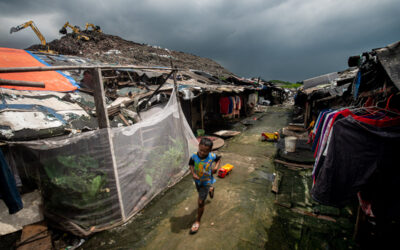In the weeks before the coronavirus got into the heads of our collective consciousness you could hear calls for quarantine all around. Not the widespread lockdowns you have now, no—they go too far, the public cries. What those early quarantine criers asked for is that they would be isolated, just them. It hadn’t any rhyme or reason, these people simply thought they would enjoy a couple of weeks of being isolated. To press a big pause button, so you will. Yet now this state of limbo is upon us their cries die down, with the ramifications of a pandemic starting to sink in.
Because the reality is that loneliness is no laughing matter and, what’s more, it’s extremely complicated. A more tortuous thing than the virus which is causing it. For while COVID-19 contamination mostly does not discriminate and jumps from host to host without any care if they’re popular, penniless, or Tom Hanks, loneliness affects everyone differently. People who are used to being alone might be able to handle two weeks of quarantine with ease, while to another solitude becomes a crushing weight they are unable to — but must — bear by themselves.
That is, of course, the curse of loneliness: you can not handle life alone, but it is alone that you have to handle it. A mandatory lockdown adds to this in such spectacular fashion, that we can not help but wonder what will become of us—a humanity not made to be alone.
What makes this all the more poignant is that most people are not spectacularly good at accepting the pain of others, opting rather to project their own state of mind on the shell that is another person. This means that anyone who is lonely and dares to call it out, hoping to find some solace in similarity — others who are feeling the same — shall have to brace for the brunt of people unable to stomach the feelings of others. ‘I do not feel lonely, so why should you,’ seems to be an all too common sentiment.
This, of course, turns feeling lonely into a cardinal sin—making it all the more impossible to bear. If you do not dare to speak of how lonely you feel, never shall you understand there’s more of us—because yes, I sometimes feel lonely too, even without a quarantine keeping me isolated.
So, we might wonder, how to feel lonely—and is there even a right way to do it? Why, yes, as with the coronavirus, of course, there’s a right way. When you don’t want to be contaminated you—as John Oliver likes to put it—don’t go running around licking subway poles. And in isolation, you don’t put the emphasis on being alone.
In my humble, and wholly unprofessional opinion, it is, in fact, the worst possible option to treat quarantine as a vacation from responsibility — isn’t it this sense of duty that has the power to makes us feel most alive? Now the world is at our fingertips, we should celebrate isolation by finally taking the time to do that thing we’ve always wanted (or at least ask yourself if that’s really what you want, after all.) In isolation then, we have the time to finally find out our own importance — if not in the world at large, then at least within ourselves.
Do you know that’s why I started to make my bed every morning? So that when I go to bed, no matter what went down during the day, I open the door and see someone cared enough about me to make my bed—and it was me. Even if all day long no one asked me how I was, or how I felt, at the end of the road there’s always someone who cares. And isn’t that the most important thing to combat loneliness, to feel there’s someone else who cares, no matter if you see them or can touch them?
That brings me to we can accept the loneliness of others. Alas, I can not here offer you a solution to insularity — people who can not imagine the pain of others have and are a far bigger problem. Yet, with loneliness, there’s also the problem of the quasi-helpful. I’m talking here about the ‘I am’-‘you’re not’, or backfire conversations that we have all dealt with in one way or another.
Loneliness is a burden. It’s something you feel you’re carrying and your expectation is that no one wants to take it away from you. The longer you hold on to it, the bigger it becomes. You feel that in the hands of another that burden would lighten, but also that there’s no one who wants to help you carry it. You meet a fellow human being and see in them a perfect candidate for the help you so desperately want and try to give them your burden: “I am feeling lonely.”
“Nooo, you’re not lonely. You have your family and your friends and you have me and next month there’s this big party you’re going to. It’s just this corona-thing is getting in your head, you’ll be fine,” is their reaction. You gave your ball of burden and they fired it right back. It backfired. If they would just hold onto your burden for a second it would vanish, but no one’s holding on—they return it and say it’s not what you think it is. ‘That’s not loneliness,’ is a hurtful thing to hear and it makes you carry your burden a little longer.
What we need then in these fearful times is not to get sucked into each other’s panic or complacence, but to accept. To take whatever I’m holding, even for just a second, because my burden is weightless to you if you just look me in the eye and say: “It must be really hard you’re feeling that way.” We all need to know we’re not insane—that it’s okay that we’re alone and don’t want to be.
Then we can be quarantined and locked down and holed up for however long it takes to kick this COVID-19 thing and come out sane at the other end. And if we don’t, if we can’t even accept each other’s loneliness, isn’t that the sign of a bigger problem? That we are well and truly alone.






**mind vault**
mind vault is a premium cognitive support formula created for adults 45+. It’s thoughtfully designed to help maintain clear thinking
**glpro**
glpro is a natural dietary supplement designed to promote balanced blood sugar levels and curb sugar cravings.
**sugarmute**
sugarmute is a science-guided nutritional supplement created to help maintain balanced blood sugar while supporting steady energy and mental clarity.
**vittaburn**
vittaburn is a liquid dietary supplement formulated to support healthy weight reduction by increasing metabolic rate, reducing hunger, and promoting fat loss.
**synaptigen**
synaptigen is a next-generation brain support supplement that blends natural nootropics, adaptogens
**glucore**
glucore is a nutritional supplement that is given to patients daily to assist in maintaining healthy blood sugar and metabolic rates.
**prodentim**
prodentim an advanced probiotic formulation designed to support exceptional oral hygiene while fortifying teeth and gums.
**nitric boost**
nitric boost is a dietary formula crafted to enhance vitality and promote overall well-being.
**wildgut**
wildgutis a precision-crafted nutritional blend designed to nurture your dog’s digestive tract.
**sleep lean**
sleeplean is a US-trusted, naturally focused nighttime support formula that helps your body burn fat while you rest.
**mitolyn**
mitolyn a nature-inspired supplement crafted to elevate metabolic activity and support sustainable weight management.
**yu sleep**
yusleep is a gentle, nano-enhanced nightly blend designed to help you drift off quickly, stay asleep longer, and wake feeling clear.
**zencortex**
zencortex contains only the natural ingredients that are effective in supporting incredible hearing naturally.
**breathe**
breathe is a plant-powered tincture crafted to promote lung performance and enhance your breathing quality.
**prostadine**
prostadine is a next-generation prostate support formula designed to help maintain, restore, and enhance optimal male prostate performance.
**pineal xt**
pinealxt is a revolutionary supplement that promotes proper pineal gland function and energy levels to support healthy body function.
**energeia**
energeia is the first and only recipe that targets the root cause of stubborn belly fat and Deadly visceral fat.
**prostabliss**
prostabliss is a carefully developed dietary formula aimed at nurturing prostate vitality and improving urinary comfort.
**boostaro**
boostaro is a specially crafted dietary supplement for men who want to elevate their overall health and vitality.
**potentstream**
potentstream is engineered to promote prostate well-being by counteracting the residue that can build up from hard-water minerals within the urinary tract.
**hepato burn**
hepato burn is a premium nutritional formula designed to enhance liver function, boost metabolism, and support natural fat breakdown.
**hepatoburn**
hepatoburn is a potent, plant-based formula created to promote optimal liver performance and naturally stimulate fat-burning mechanisms.
**flow force max**
flow force max delivers a forward-thinking, plant-focused way to support prostate health—while also helping maintain everyday energy, libido, and overall vitality.
**neuro genica**
neuro genica is a dietary supplement formulated to support nerve health and ease discomfort associated with neuropathy.
**cellufend**
cellufend is a natural supplement developed to support balanced blood sugar levels through a blend of botanical extracts and essential nutrients.
**prodentim**
prodentim is a forward-thinking oral wellness blend crafted to nurture and maintain a balanced mouth microbiome.
**revitag**
revitag is a daily skin-support formula created to promote a healthy complexion and visibly diminish the appearance of skin tags.